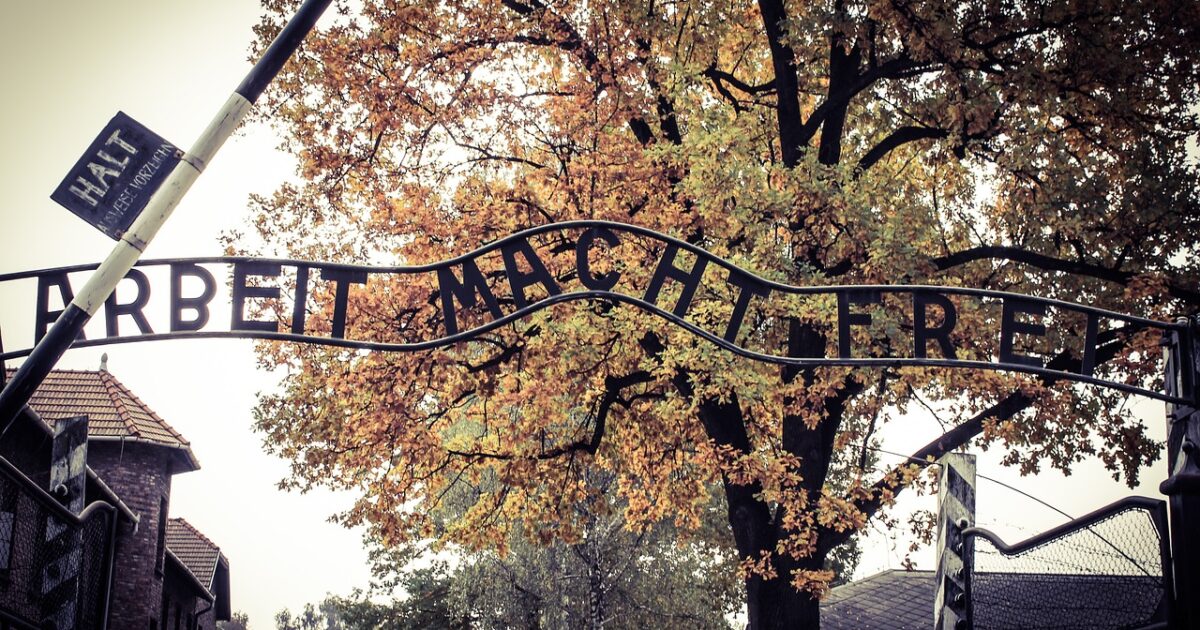Holocaust
Proof of ‘thousand ways’ Jews resisted Nazis

It’s a pernicious myth that Jews went “like sheep to the slaughter” in the Holocaust. This is the central message of a new documentary film, titled Resistance: They Fought Back.
In advance of International Holocaust Remembrance Day on 27 January – the day Auschwitz was liberated in 1945 – the SA Jewish Report spoke to pre-eminent Holocaust scholar Dr Michael Berenbaum in Los Angeles. Berenbaum was intimately involved in developing this documentary, which examines the myriad ways Jews resisted the Nazis and their collaborators who sought to exterminate them, in the ghettos, camps, and forests of Eastern Europe.
Among his many accolades, Berenbaum oversaw the creation of the United States Holocaust Museum in Washington, D.C., and worked intimately with moviemaker Steven Spielberg to document the stories of Shoah survivors. He’s director of the Sigi Ziering Institute: Exploring the Ethical and Religious Implications of the Holocaust at the American Jewish University, where he’s also a professor of Jewish Studies. Berenbaum has driven the development of museums in Europe, Mexico, and the United States. He has also been a historical advisor on more than 40 films. “I’m like the rabbi,” he quipped, “telling them if the movie material is kosher or treyf.”
Resistance: They Fought Back is a significant film, Berenbaum said, because it calls attention to the use of children of Holocaust survivors as narrators of their parents’ stories. “They do it in a manner that essentially extends the life of survivors for another generation, for another 20 to 25 years. This may be the film’s most important contribution,” Berenbaum said. “The Holocaust is a story worth telling and retelling. The story of the Exodus from Egypt has been told and retold for 3 200 years.”
Berenbaum said the exhortation to Jews not to go “like sheep to the slaughter” was first made by resistance fighter Abba Kovner in the Vilna Ghetto in 1942. “You should die as free men,” Kovner said.
He added that in the Holocaust, there was often a disproportionate response by the Nazis to physical resistance by Jews, where hundreds would be killed or punished for the rebellious actions of a few. Berenbaum also noted that the new state of Israel was looking for useable history to come out of the tragedy, designating Yom Hashoah ve’Hagvura (Holocaust and Heroism Day).
“Just because Jews were powerless doesn’t mean they were passive. They did a thousand things to act against the Nazis,” Berenbaum said. “Don’t blame the victims for their victimhood.” He noted how negative attitudes in Israel towards survivors changed after the Adolf Eichmann trial in 1961.
Berenbaum described three types of non-armed resistance to German occupation. The first was symbolic resistance, which included acts like educating children in the ghettos, prayer, and washing clothes. The second was polemical resistance – the production of underground newspapers, publications, songs, poems, and keeping diaries to bear witness. It included humour to disparage the enemy. The third was self-help, like running soup kitchens and looking after the less fortunate. Armed resistance took place only after Jews were sure they were destined to die at the hands of the Nazis and their collaborators. But armed resistance did take place in many ghettos and camps, including the blowing up of a crematorium in Auschwitz and a daring escape from Treblinka.
The documentary also highlights how Jewish women played a key role as couriers of information, blending more easily into the gentile world than their circumcised brothers. Jewish women also spoke Polish without a heavy Yiddish accent due to their secular education, unlike their brothers in yeshivot.
When asked how he felt as International Holocaust Remembrance Day approached, Berenbaum said that the Jewish people took three decisions in the aftermath of the Shoah that were pivotal to what has transpired in the past 78 years, namely, to remain Jewish – although not everyone chose this; that the future of the Jewish people would be in a Jewish state that would protect Jewish life; and that Jewish life would be secured in societies like democracies where freedoms were guaranteed and respected.
“At this moment, the last two aren’t secure. It’s unclear after 7 October whether Israel can protect Jewish life – I say this with tears in my eyes. And I’m not confident that liberal democracies will survive in this age of fascination with autocratic rule. There’s an existential challenge to these basic decisions,” Berenbaum said.
“I’m interested to see how the aftermath of 7 October will appear in the Israeli national narrative. How will this pogrom be remembered in five or ten years?”
Berenbaum said that different generations ask different questions. The grandchildren of Holocaust survivors, for example, are asking about the period from 1918 to 1933, and how Germany as a democracy full of promise degenerated into authoritarian rule.
“The Shoah has lessons to teach everyone about the fragility of democracy and the dangers of polarisation today.”
- A discussion on the film will be held online on 25 January at 22:00. It’s a collaboration between the Johannesburg Holocaust & Genocide Centre, Classrooms without Borders, and Ghetto Fighters’ House.
